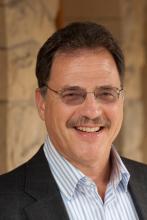What Is It
Americans value democracy, and expect others to value it. But is it a universal value? Does God, or rationality, or something very basic about human sensibility, dictate that states should be organized democratically? What if there were empirical evidence that some non-democratic form of government is more likely to produce human happiness, cultural achievement, and sound money? John and Ken consider the universality of democratic values with Larry Diamond, Senior Fellow at the Freeman Spogli Institute for International Studies and author of The Spirit of Democracy: The Struggle to Build Free Societies Throughout the World. This program was recorded live at the Marsh theatre in San Francisco.
Listening Notes
Ken and John begin the show by hashing out a working definition for democracy. Ken then brings up an essential question: is this form of government inherently good? Plato and Hobbes were vocally against democracy as an effective style of government, Ken reports, because such a system puts a premium on skills needed to win office rather than skills needed to govern well. John counters by citing Locke as a philosophical defender of democracy and reminding Ken that, at least in the West, democracy is obviously considered in a very positive light.
But is democracy universally preferred? Are there philosophical reasons for why it should it be?
For help in answering these questions, Ken and John turn to the show’s guest, Larry Diamond. Ken starts by pushing Plato’s critique: the pandering and deceit in campaigns are not how we should go about electing leaders. However, Larry points out, one man’s pandering is another’s responsiveness to public will. Larry agrees that the United States is not as good of a democracy as it can be, but we can work to improve it. He emphasizes increased transparency, tighter restrictions on campaign funding, and control of overbearing corporate interests as ways to strengthen democracy in our nation.
One audience member wonders whether a different culture or level of economic development than the United States could lend a country to be best suited to a non-democratic form of government. But the evidence Larry cites tells another story; public opinion survey evidence shows that there is a universality to the valuing of democracy. There are high levels of support for democracy in the Arab world, and in India, a comparatively poor nation, democracy is thriving. One might think that the example of China indicates that non-democratic systems of government are more economically prosperous, but Larry asserts that to think so would be missing the fact that out of the top five economically successful countries, three are democracies.
Finally, Ken continues to express doubt that democracy is ideal and is concerned that it allows for easy manipulation of the ill-informed by the elite. Larry concludes with a myriad of examples to combat this belief, demonstrating that democracy is much more responsive to the public’s interests than we give it credit for.
- Roving Philosophical Reporter (Seek to 5:00): Caitlin Esch speaks with UC Berkeley Graduate School of Journalism student Major Tian about the differences in American and Chinese media. Although growing up, Tian was always critical of Chinese media, he explains that Western news sources show bias as well.
- 60-Second Philosopher (Seek to 49:16): In humorous mockery, Ian Shoales describes Americans’ waning faith in democracy and the loss of civil discourse in popular media today.



